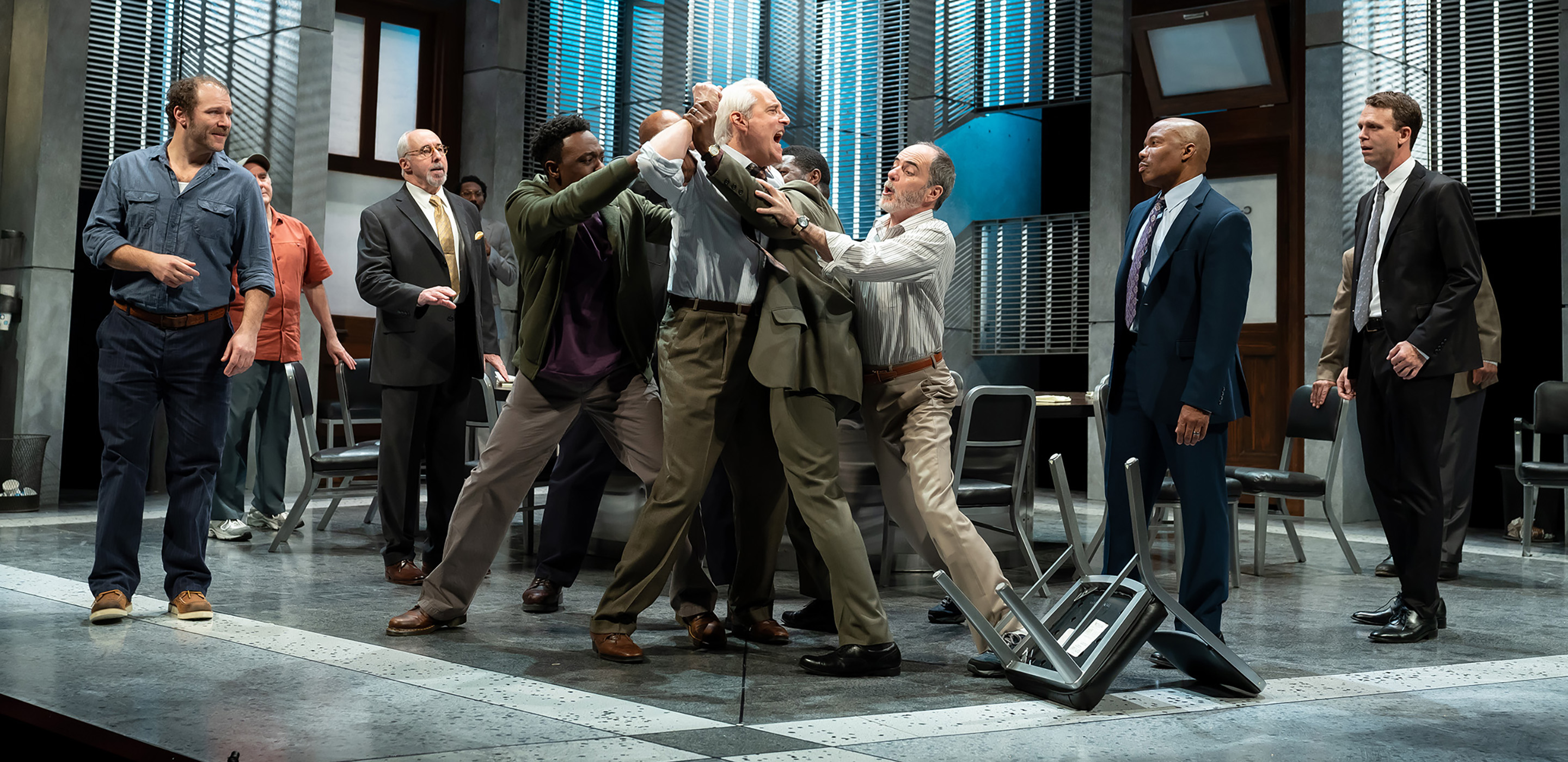
Director Sheldon Epps Discusses his Ford’s Theatre Twelve Angry Men Production
In January 2019, Ford’s presents a new production of the American drama Twelve Angry Men. Directed by Sheldon Epps, the play gives audiences a behind-the-scenes look at the jury deliberation room. Epps recently spoke with us about his concept for the play here in Washington, D.C.

When did you first see or read Twelve Angry Men?
I’m sure that my first exposure to the material was seeing the very good 1957 Sidney Lumet movie, which is really a filmed version of the play in many ways. Several years ago I also saw a Broadway revival of the play and was reminded of how very strong it is and how relevant and resonant. It holds up extremely well.
You previously directed this play for Pasadena Playhouse in 2013. What led you to direct the work then?
I had a slot open up and become available shortly after Trayvon Martin was shot, which resulted in then president Barack Obama’s first speech addressing race and how alive racial issues were at the time. I felt strongly that I wanted to put something on the stage that addressed these sensitive and very explosive issues in a meaningful way. That led me to this casting concept of the play, which, without substantial changes to the dialogue, gives a new subtextual weight to the racial issues, which have always been inherent in the play. There were many discoveries in rehearsal that made the play even more immediate and visceral than we even anticipated.
Why are you interested in revisiting the play now?
Sadly, very sadly, those same racial issues are still with us and perhaps are even exacerbated by many events that have taken place recently and by overt statements that we read and hear on an almost daily basis. I believe that this is what motivated Ford’s Director Paul Tetreault to call me about mounting my version of the play in the current season. When he called me about that, I recognized the strong validity of putting the play in front of an audience to inspire debate and discussion of these issues once again. One would hope that the story might be less relevant and less resonant than it was several years ago but, alas, that is not the case.

Tell us about your casting choices and how they add to the play’s resonance. What do you hope this can show us about bias and justice?
I’ve chosen to do the play with six black actors and six white actors. In truth, the play can and has been cast in any number of ways. But this casting choice most directly addresses the issues that I hoped to explore. It is all about the judgements and biases that people bring into a room and the still rampant cultural divide that (deny it though we may) very often exists between races in our country. I hope that what we learn is that the only way to begin getting around all those issues is to acknowledge that they exist. Then we can move forward, just as the characters do in the play.
How will the Ford’s production be different from your production in 2013?
What I found is that the play is completely informed and defined by the particulars of the actors playing these 12 roles. They will bring their points of view, their own history and experiences to the work. In that way, though the concept of the production will remain the same, it will be completely new and different. I won’t know exactly how until we are in the room together, but I already know that this will be true. I look forward to what I call the “voyage of discovery” with this particular group of very fine actors.

You’ve said that the play is well-suited for Ford’s, both thematically and historically. Why?
Well, first of all, it is apt because of the city in which the theatre exists. Even in its proximity to certain significant buildings that are within walking distance of the space. In those “houses,” decisions are made which affect the political and racial climate in our nation from day-to-day and set the tone for what many are feeling in any number of directions. And, of course, Ford’s Theatre honors the spirit and legacy of the president who had to confront racial issues more directly and more dramatically than any other in our history. So, the very air in the theatre will make this exactly the right atmosphere for producing the play with this concept. Abraham Lincoln made decisions and monumental choices during his life that completely changed the way our country deals with race. These decisions still affect and define who we are as a nation, a country of individuals and a society, even today.
It’s just that we’re talking about somebody’s life here. I mean, we can’t decide in five minutes. Suppose we’re wrong?
From Twelve Angry Men
What else do you want to share about the play, performing at Ford’s Theatre or this particular project?
I would only add that in the previous incarnation, the production inspired energetic conversations, discussions and sometimes even arguments that continued well after the final curtain. From my point of view, that is a healthy and valuable thing for the theatre to do. I hope that will happen again, and I believe that it will.
Learn more online about the Ford’s production of Twelve Angry Men, which plays January 18-February 17, 2019.

